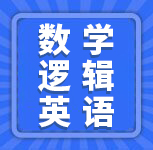
To combat the trap of putting a premium on being busy, Cal Newport, author of Deep work: Rules for Focused Success in a Distracted world, recommends building a habit of “deep work”—the ability to focus without distraction.
There are a number of approaches to mastering the art of deep work—be it lengthy retreats dedicated to a specific task; developing a daily ritual; or taking a “journalistic” approach to seizing moments of deep work when you can throughout the day. Whichever approach, the key is to determine your length of focus time and stick to it.
Newport also recommends “deep scheduling” to combat constant interruptions and get more done in less time.“At any given point, I should have deep work scheduled for roughly the next month. Once on the calendar I protect this time like I would a doctor’s appointment or important meeting”, he writes.
Another approach to getting more done in less time is to rethink how you prioritize your day—in particular how we craft our to-do lists. Tim Harford, author of Messy: The Power of Disorder to Transform Our Lives, points to a study in the early 1980s that divided undergraduates into two groups: some were advised to set out monthly goals and study activities; others were told to plan activities and goals in much more detail, day by day.
While the researchers assumed that the well-structured daily plans would be most effective when it came to the execution of tasks, they were wrong: the detailed daily plans demotivated students. Harford argues that inevitable distractions often render the daily to-do list ineffective, while leaving room for improvisation in such a list can reap the best results.
In order to make the most of our focus and energy. We also need to embrace downtime, or as Newport suggests, “be lazy.”
“Idleness is not just a vacation, an indulgence or a vice; it is as indispensable to be brain as Vitamin D is to the body...[idleness]is, paradoxically, necessary to getting any work done,” he argues.
Srini Pillay, an assistant professor of psychiatry at Harvard Medical School, believes this counter-intuitive link between downtime and productivity may be due to the way our brains operate When our brains switch between being focused and unfocused on a task, they tend to be more efficient.
“What people don’t realise is that in order to complete these tasks they need to use both the focus and unfocus circuits in their brain”. says Pillay.
1. The key to mastering the art of deep work is to ________.
A. keep to your focus time
B. list your immediate tasks
C. make specific daily plans
D. seize every minute to work
2. The study in the early 1980s cited by Harford shows that ________.
A. distractions may actually increase efficiency
B. daily schedules are indispensable to studying
C. students are hardly motivated by monthly goals
D. detailed plans many not be as fruitful as expected
3. According to Newport, idleness is ________.
A. a desirable mental state for busy people
B. a major contributor to physical health
C. an effective way to save time and energy
D. an essential factor in accomplishing any work
4. Pillay believes that our brains’ shift between being focused and unfocused _______.
A. can result in psychological well-being
B. can bring about greater efficiency
C. is aimed at better balance in work
D. is driven by task urgency
5. This text is mainly about _______.
A. ways to relieve the tension of busy life
B. approaches to getting more done in less time
C. the key to eliminating distractions
D. the cause of the lack of focus time

1. 【答案】[A]keep to your focus time
【解析】细节题。根据题干的mastering the art of deep work定位到第二段首句。该句指出“有很多种掌握深度工作的方法-不论是专注于指定工作时长时间的后退,或者养成惯例,还是当你一天有闲暇之余采用纪实的方式捕捉深度工作的瞬间”。接着提到“不论是那种方式,关键在于确定你的专注力时间长度并保持专注”。由此可知,A项为正确答案。
2. 【答案】[D]detailed plans may not be as fruitful as expected
【解析】例证题。根据题干时间信息1980s以及Harford定位到第四段与第五段。第四段首句指出另一种短时间做更多事情的方法是反思怎么才能优先处理好你的一天-特别是制作我们待办事项的方法。接着作者举例大学生们分成小组每天做各种详细复杂的任务。第五段首句用while画风一转,表示这种复杂的任务让学生们感到消极,并表示工作中难免会分散注意力,这将影响日常待办事项的效率。可知,作者用反面例子来论证观点,即复杂的计划可能没有像期望的那样有效果。故选D项。
3. 【答案】[D]an essential factor in accomplishing any work.
【解析】根据题目Newport得出本题目为细节题中的文中人物观点题。根据题干中的idleness可定位到倒数第三段,idleness is not,读到这里依然需要看下文,下面提到it is as…as…,is necessary to getting any work done。再对应选项,可直接选出[D]an essential factor in accomplishing any work。
4. 【答案】[B]can bring about greater efficiency.
【解析】根据题目中的Pillay believes 可得出本题目为细节题中的文中人物观点题型。根据题目中的信息,可以定位到倒数第二段最后一句,明确指出they tend to be more efficient。然后对应选项得出[B]can bring about greater efficiency。
5. 【答案】[A]approaches to getting more done in less time.
【解析】根据题目的mainly about可知为文章主旨题,首先可以通过题目的复现内容找与文章主旨有关的词汇,题目中反复出现了focus内容,可判断与人们的注意力有。其次,文章主旨一般在开篇第一段或第二段会出现,第一段引用Cal Newport的观点指出focus without distraction话题,第二段就提到了主题approaches to mastering thd art of deep work,此刻主题已明确,并且第四段有明显的证明another approach。所以本题选[A]approaches to getting more done in less time。

2023-12-12 17:40:02

2023-12-11 17:22:04

2023-12-08 11:26:18

2023-12-06 17:42:57

2023-12-05 13:50:18
学制: 3年 学费: 69000元
上课地点: 陕西 授课方式:面授班
学制: 1年 学费: 16000元
上课地点: 深圳 授课方式:网络班/面授班